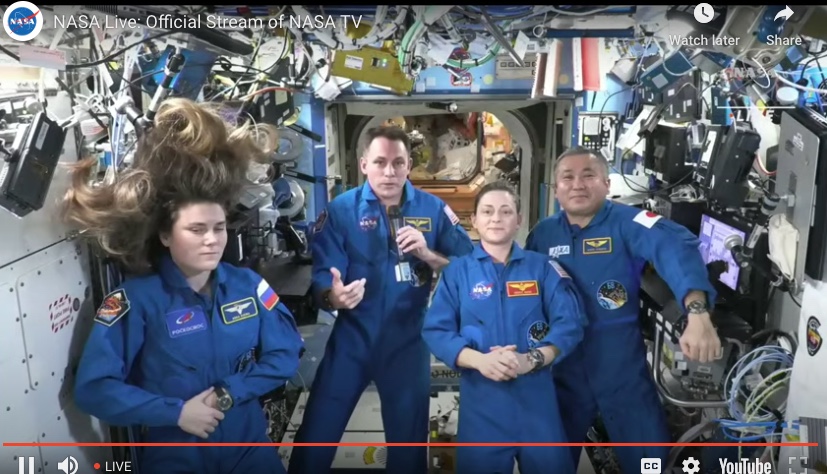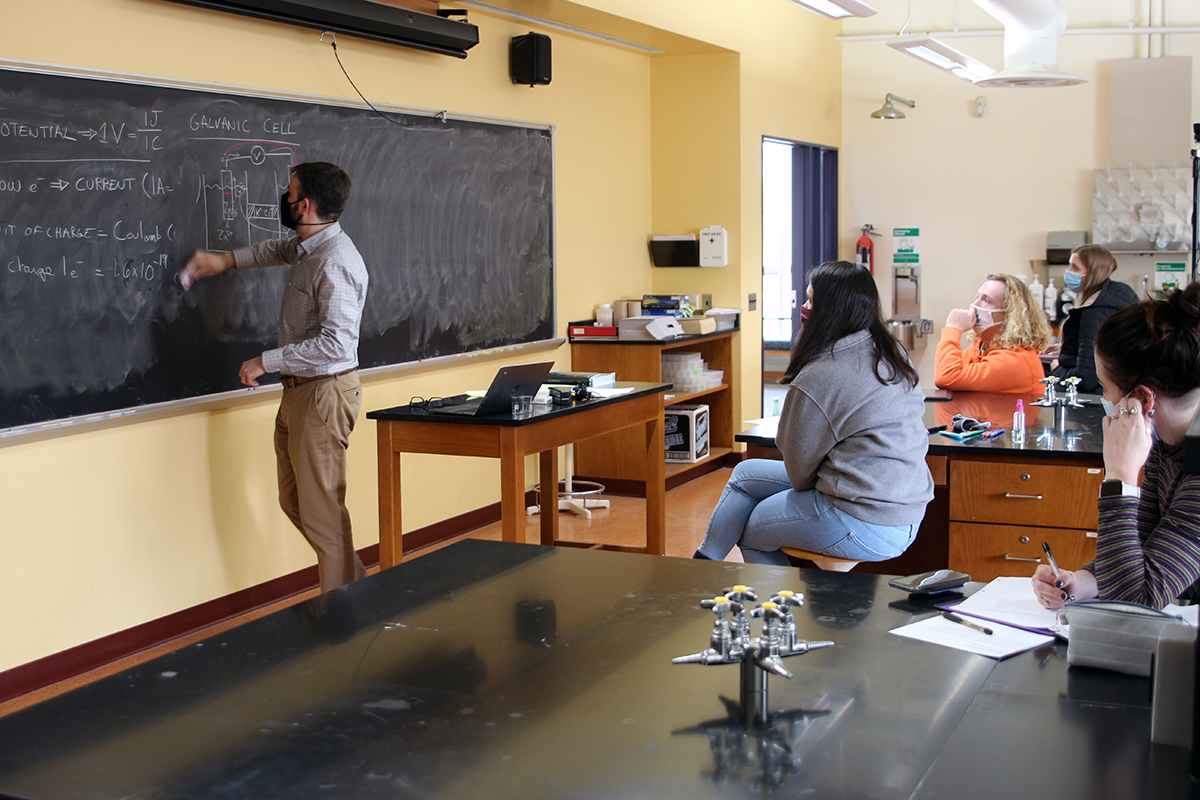Cassada, ’95, talks about “academic courage” he built at Albion College
Related Programs
Related Posts
Connect With Us
March 2, 2023

There probably isn’t a question Albion astronaut Josh Cassada, ’95, has not already answered during his numerous interviews and downlinks while aboard the International Space Station.
The questions will likely not end anytime soon, but his six-month tour on ISS is drawing to a rapid close. The question remains incredibly important to all involved: when will Crew-5 return to Earth?
Crew-6 of the International Space Station is scheduled to launch March 2 from the Kennedy Space Center. The launch of Crew-6 was initially slated for Feb. 27 and bumped twice.
A March 2 launch would provide Cassada and his Crew-5 colleagues with a more definite timeline for return — several days after welcoming Crew-6 to the ISS.
In the meantime, there were still more questions for Cassada and his crewmates (Crew commander Nicole Mann, Japanese astronaut Koichi Wakata and Russian cosmonaut Anna Kikina) to answer from the media in a live news conference from the ISS Wednesday, March 1.
The questions ranged from highly technical to somewhat silly and even some old favorites. The Associated Press, the Washington Post and Michigan’s own MLive were just a few of the domestic media outlets lined up to ask questions of the astronauts. There were also questions from the international press in Japan and Mexico and social media.
Each member received their fair share of questions during the 30-minute availability. The crew gathered around one microphone, dressed in the official flight suits of their nation and floating in zero gravity.
Mann was asked about her experience as a woman in the flight program at NASA, while Wakata’s centered on the announcement of two new candidates from Japan for the ISS program. Russian cosmonaut Kikina was asked how she manages her luxuriously long hair in space (the secret is three rinses).
Sam Dodge, the education reporter from MLive, asked Albion’s own Cassada about how his experiences at Albion College helped propel him on his journey to become an astronaut.
“Albion College is a small school that offered me a huge opportunity,” said Cassada. “In fact, my college was smaller than my high school. What was really empowering to me and meaningful to me was being in an intimate group. In fact, just last night, I spoke to one of my professors from college, Dr. Kammer. When he would teach, he would roll up his sleeves, just like my sleeves are rolled up now, and that’s when I knew we were going to get to work.”
Cassada said that despite being in a class with as few as three other students, he learned about teamwork and what he described as “academic courage.”
“A lot of that stuff can seem daunting and overwhelming when you think about it, and it kind of, sometimes, keeps you from wanting to pursue it, but you learn pretty quickly that once you get into it’s not nearly as bad as you might have guessed. It’s a lot of work, but it’s worth it and that is the lesson that I have learned from Albion that I have taken all the way up here. And I will take it with me for the rest of my life until I figure out what I want to do when I grow up,” Cassada said, with a sincere chuckle.
Cassada also was asked, from his hometown paper in Minnesota, his advice for those who want to follow him to space.
“To be where I am now with these amazing people, the first step was not counting on it. For me, this is a little bit like playing the lottery, you can’t win if you don’t buy a ticket, but you are probably going to need a different retirement plan. That is what I say about this job. My path to get here was to do what I love.”
When asked about the best and worst of his time on the International Space Station, Cassada said that one of the best moments was his recent viewing of the auroras on Earth.
The worst experience being miles above Earth?
“Losing things,” Cassada said. “Things just sneak off. It is really one of the few complaints I have about being here.”
Cassada said there is so much equipment squeezed into the ISS that when you focus on trying to find one thing, it all seems to blend together, making it harder to find that for which you are looking.
As for his imminent return to Earth, Cassada said one of the first things he will do is take another voyage — on a sailboat with his family.
“In our family of four, I am the only person who can’t sail, despite being the only one who is in the US Navy,” Cassada said. “So when I get back, my kids have promised to teach me how to sail.”
While Cassada waits to come home, he and the rest of the inhabitants of the ISS, currently a population of seven, have at least one more question to answer — how to find room on the ISS for 11 people when the ISS was built to accommodate six?
It looks as though Cassada will get to use some of that teamwork he learned at Albion College for something other than science and math in his remaining days on the International Space Station, demonstrating once again the value of a liberal arts education.
